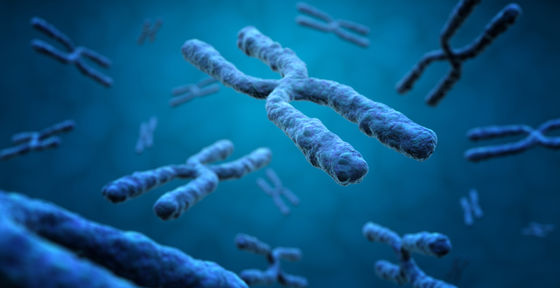'Is fast walking good for your health? Can you just walk in a staster because you are healthy?' The problem is settled, or DNA research reveals that 'fast walking people age slowly'

A large study analyzing the genetic data and walking pace of more than 400,000 British people showed that 'people who walk fast are slow to age' regardless of the amount of exercise. From this, it was found that there is a difference of 16 years in the degree of aging between those who walk fast and those who do not.
Investigation of a UK biobank cohort reveals causal associations of self-reported walking pace with telomere length | Communications Biology
Stop the clocks: Brisk walking may slow biological aging process, study shows | News | University of Leicester
https://le.ac.uk/news/2022/april/walking-speed-ageing
Previous studies have shown that ' walking speed changes the risk of dying from heart disease ' and ' there is a relationship between walking speed and aging of the brain and body ', but up to the causal relationship. Since it was not proven, there was the problem that the possibility of walking faster than a healthy person could not be ruled out.
On this issue, Tom Yates, a kinetic scholar at the University of Leicester, UK, said, 'We researchers have shown that walking pace is a very strong predictor of health, but in fact. I haven't been able to confirm that 'walking fast will make you healthier.'

Although the complex relationship between telomeres and health has not been fully elucidated, the research team believes that telomere length is the best indicator of the degree of aging, UK Biobank registrants 405,981. We conducted research to analyze human genetic data, self-reported walking speed, and activity tracking data from participants' wearable devices.
As a result, it was found that those who walk fast have significantly longer leukocyte telomere length (LTL), which is the length of telomeres obtained from leukocytes. On the other hand, on the contrary, if the LTL was long, it was not fast to walk, so this also confirmed the causal relationship between the walking speed and the LTL.

'By using genetic data, we were able to strongly prove the causal relationship between walking speed and telomere length, and from wearable devices,' said Paddy Dempsey, the lead author of the paper. The data also confirm that the intensity of habitual activities such as walking fast plays a large role. '
He added, 'This result makes it possible to easily examine the risk of chronic diseases and senile syndrome by measuring walking speed, and walking speed is also considered when considering interventions for how to improve life. It suggests that it plays an important role, for example, it is possible to aim to walk faster than usual to the bus stop, rather than just increasing the amount of walking, but more to confirm this. We need to investigate, 'he said, saying that trying to walk fast is the key to combating aging.
Related Posts:
in Science, Posted by log1l_ks







